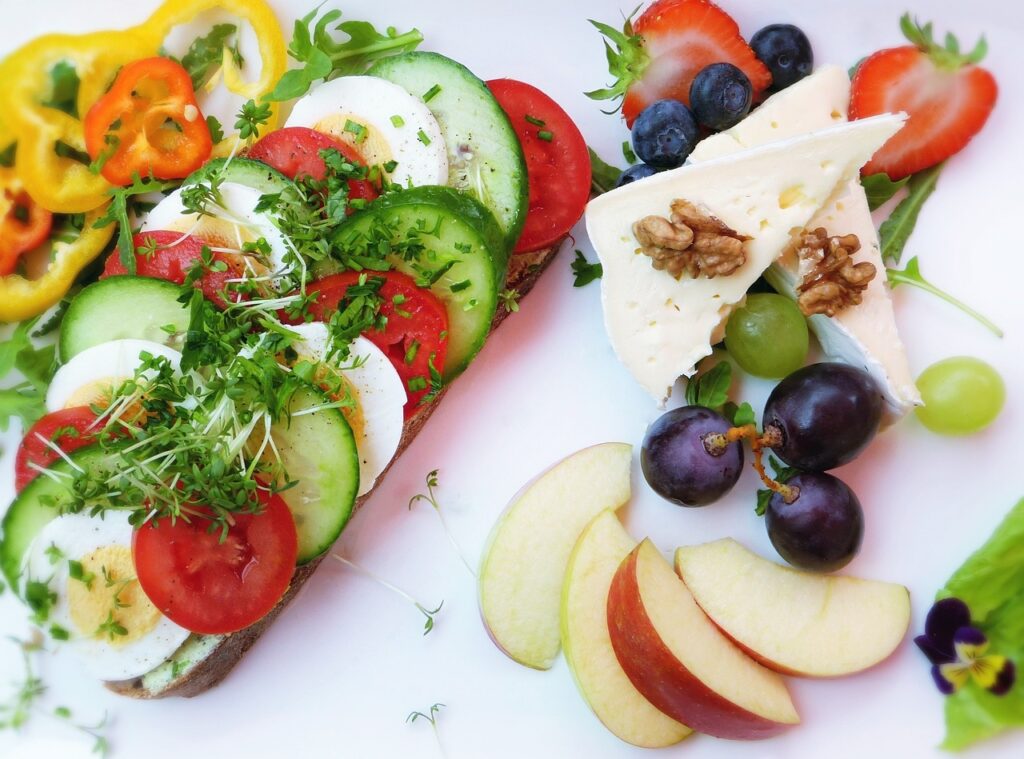Type 2 diabetes is a long-term condition that affects the way your body processes sugar (glucose). Although medication is often necessary for managing diabetes, many people with Type 2 diabetes can achieve better control over their blood sugar levels through lifestyle changes. These adjustments not only help to regulate blood glucose but can also improve your overall health. Below are ten effective and natural ways to manage Type 2 diabetes.
1. Maintain a Balanced Diet
One of the most important steps in managing Type 2 diabetes is adopting a balanced diet. Foods that are high in fiber and low in simple sugars can help stabilize blood sugar levels. Incorporate whole grains, lean proteins, vegetables, and healthy fats into your meals.
- Why it works: Whole grains and fibrous foods have a lower glycemic index (GI), meaning they don’t cause blood sugar spikes as quickly as refined carbs.
- Examples: Brown rice, oats, quinoa, leafy greens, and fish like salmon or mackerel are ideal choices.
2. Exercise Regularly
Physical activity plays a significant role in managing diabetes. Regular exercise increases insulin sensitivity, helping the body to use glucose more efficiently.
- Recommendation: Aim for at least 30 minutes of moderate exercise most days of the week. Walking, cycling, and swimming are excellent activities for staying active.
- Why it helps: Exercise lowers blood sugar levels and improves cardiovascular health, which is crucial for diabetics.
3. Monitor Your Blood Sugar Levels
Frequent monitoring of your blood sugar levels is key to managing diabetes. Self-monitoring allows you to understand how certain foods, activities, or even stress levels affect your blood sugar.
- Recommendation: Test your blood glucose at various times during the day—before meals, after meals, and before bed.
- Why it’s important: Tracking blood sugar levels can help you avoid dangerous highs (hyperglycemia) and lows (hypoglycemia).
4. Stay Hydrated
Drinking plenty of water is essential for everyone, but especially for people with diabetes. Dehydration can cause blood sugar levels to spike.
- Recommendation: Aim for 8-10 glasses of water per day. Herbal teas without sugar are also great hydrating options.
- Why it matters: Water helps the kidneys flush out excess sugar, which can lower blood glucose levels naturally.
5. Incorporate More Fiber
Foods rich in fiber slow the absorption of sugar and help to regulate blood glucose levels. High-fiber foods also promote better digestion and overall gut health, which is important for people managing Type 2 diabetes.
- Recommendation: Aim for 25-30 grams of fiber a day from sources like fruits, vegetables, beans, and whole grains.
- Why it’s effective: Fiber-rich foods keep you fuller for longer, preventing overeating and stabilizing blood sugar throughout the day.
6. Get Quality Sleep
Quality sleep is crucial for overall well-being, and it plays a significant role in managing diabetes. Lack of sleep can make it more difficult for your body to regulate blood sugar levels, which can increase insulin resistance.
- Recommendation: Get 7-8 hours of restful sleep each night by sticking to a sleep schedule and creating a relaxing bedtime routine.
- Why it’s important: Poor sleep can raise levels of stress hormones, which may elevate blood sugar levels.
7. Manage Stress Levels
Chronic stress can elevate blood sugar levels and increase insulin resistance, making it harder to manage diabetes. Stress management techniques can help you stay calm and keep your glucose levels in check.
- Recommendation: Practice relaxation techniques such as meditation, yoga, or deep breathing exercises.
- Why it works: These activities reduce stress hormones like cortisol, which can cause blood sugar spikes when levels are high.
8. Use Natural Supplements
Natural supplements such as cinnamon, fenugreek, and berberine have shown potential in lowering blood sugar levels. Always consult a healthcare professional before incorporating these into your routine.
- Why it’s beneficial: These supplements may improve insulin sensitivity and reduce fasting blood sugar levels.
- Recommendation: Incorporate these supplements cautiously, with your doctor’s approval, as part of a broader diabetes management strategy.
9. Limit Alcohol Intake
Drinking alcohol can interfere with your blood sugar control, leading to both hyperglycemia and hypoglycemia. It’s important to drink in moderation and be mindful of the type of alcohol you consume.
- Recommendation: If you choose to drink, limit it to one drink per day for women and two for men. Opt for dry wine or spirits, avoiding sugary cocktails.
- Why it matters: Alcohol affects your liver’s ability to produce glucose, leading to fluctuations in blood sugar levels.
10. Lose Excess Weight
Maintaining a healthy weight is critical for managing Type 2 diabetes. Even a small reduction in body weight can significantly improve insulin sensitivity and lower blood glucose levels.
- Recommendation: Focus on sustainable weight loss through diet and exercise. Avoid fad diets, and instead, aim for a gradual weight loss of 1-2 pounds per week.
- Why it’s effective: Losing even 5-10% of your body weight can greatly improve blood sugar management and reduce the need for medication.
Conclusion
Managing Type 2 diabetes naturally requires a holistic approach involving diet, exercise, stress management, and sometimes natural supplements. By making these lifestyle changes, you can take greater control of your health and potentially reduce your reliance on medication. Always consult with your healthcare provider to create a diabetes management plan that works best for you.









